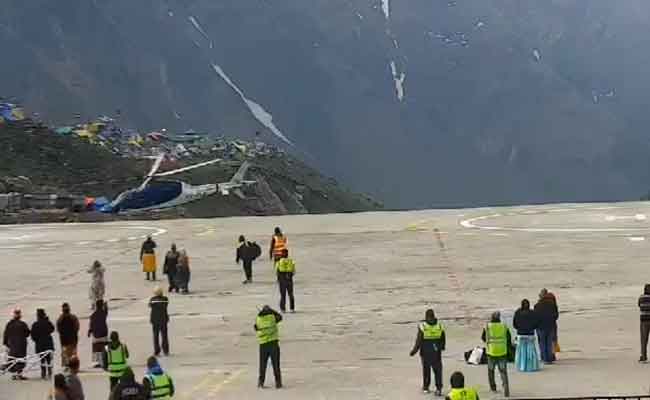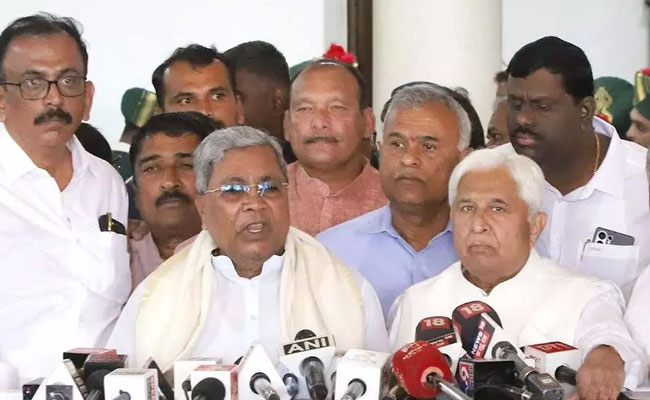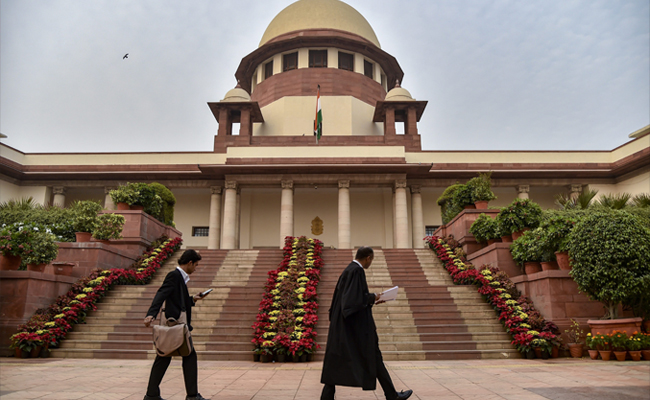Dehradun (PTI): A helicopter with seven people, including pilgrims, on board made an emergency landing in Uttarakhand's Kedarnath after developing a technical snag early on Friday.
The helicopter landed a few metres from the helipad at the Himalayan temple, an official said.
It was carrying seven people, including six pilgrims and the pilot. Everyone is safe, he said.
Rudraprayag District Magistrate Saurabh Gaharwar said the helicopter took off from the Sirsi helipad for Kedarnath early on Friday.
It developed a technical snag in its rear motor, prompting the pilot to make an emergency landing a few metres from the helipad in Kedarnath, he said citing preliminary reports.
The pilot kept his cool and took a quick decision, averting a major mishap, Gaharwar said.
Everyone is safe and the pilgrims have even returned after having "darshan" at the temple, he added.
The incident occurred around 7 am and further investigations are underway, Gaharwar said.
A Leonardo A119 Koala helicopter owned by Kestrel Aviation, Callsign VT-CLR, lost control at about 0700h today morning as it approached the Kedarnath Helipad for landing in Uttarakhand.
— Ashok Bijalwan अशोक बिजल्वाण 🇮🇳 (@AshTheWiz) May 24, 2024
It was a miraculous escape for the crew and the six passengers onboard the helicopter.
The… pic.twitter.com/9oMEUhDtZY
Let the Truth be known. If you read VB and like VB, please be a VB Supporter and Help us deliver the Truth to one and all.
Bengaluru: Chief Minister Siddaramaiah has criticised Governor Thawar Chand Gehlot for not skipping the Cabinet-approved address and reading his version of the address at the first joint session of the year, alleging that the move violated constitutional provisions and amounted to an insult to the elected legislature.
Karnataka Governor Thawar Chand Gehlot addressed the joint session of the state legislature on Thursday, but read only three lines of the government’s prepared speech before leaving the House. A day earlier, he had refused to address the session.
Speaking to reporters at Vidhana Soudha on Thursday on the Governor’s shortened address to both Houses of the legislature, he said, “As per the Constitution, it is the Governor’s duty to address the joint session held at the beginning of every year and when a new government is formed.”
He said that under Articles 176 and 163 of the Constitution, the Governor is required to read the address prepared by the Cabinet, a practice that has been followed since the Constitution came into force.
“By delivering a speech drafted by himself, the Governor had violated constitutional provisions and insulted the Assembly of elected representatives,” the Chief Minister alleged.
The Chief Minister highlighted that the Congress party and the state government would protest what he termed an unconstitutional act and that agitations had been planned across the state.
He alleged that the Governor had acted as the “puppet” of the Centre, accusing the Central government of using the Governor to deliver a different address to cover up its own failures, and said the Governor had not fulfilled his constitutional duty.
He further alleged that the Centre had repealed the Mahatma Gandhi National Rural Employment Guarantee Act and introduced a new scheme called ‘VB-G RAM G’, a move strongly opposed by the state government. He said the first step taken by the Centre was to remove Mahatma Gandhi’s name from the Act.
Recalling the Congress-led UPA government’s initiatives, Siddaramaiah said that during Manmohan Singh’s tenure as Prime Minister in 2005, landmark legislations such as the Right to Food, Right to Information, Right to Education and Right to Employment were implemented in line with constitutional principles.
He added that the employment guarantee programme, aimed at providing at least 100 days of work to the rural poor, continues to benefit Dalits, labourers, women and small farmers.
He claimed that under the Centre’s new Act, job security for beneficiaries had been weakened, particularly affecting women and Dalits, who together formed a large share of those employed under the earlier scheme. He said the previous law allowed small farmers to take up work on their own land and ensured employment throughout the year, which was the government’s responsibility.
Siddaramaiah alleged that under the new arrangement, poor workers would be required to work at locations decided by the Central government. He also pointed out that earlier, Gram Sabha’s and Panchayats had the authority to prepare employment action plans, but this decentralised decision-making process had been removed under the new Act.





